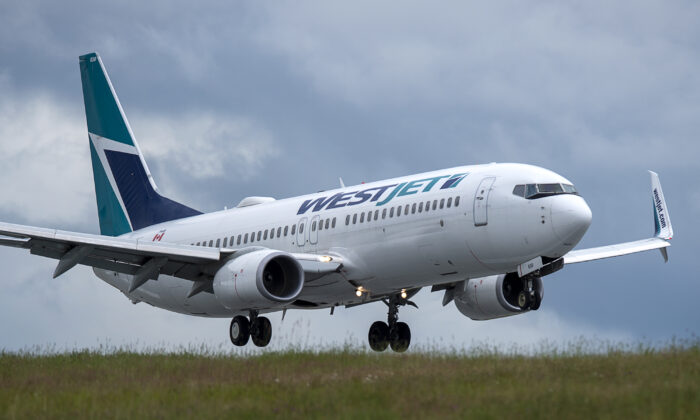Ottawa Steps in to Prevent WestJet Strike by Implementing Arbitration for Airline Mechanics
A potential strike at WestJet over the long weekend has been avoided.
The federal government intervened on June 27, directing the airline and plane mechanics to binding arbitration to prevent a work stoppage that could have disrupted travel plans for many over the Canada Day weekend.
In a late-day social media post, Labour Minister Seamus O’Regan stated that he was using his authority under the Canada Labour Code to resolve the dispute between the two parties before the June 28 deadline.
“Strong initial agreements pave the way for successful negotiations between unions and employers,” said Mr. O’Regan in a statement.
Both WestJet and the Aircraft Mechanics Fraternal Association agreed to comply with the order, ensuring that strikes and lockouts are off the table.
“With the government’s actions, Canadians’ summer travel plans have been safeguarded, and we are on the path to resolution,” said WestJet Airlines president Diederik Pen. No additional flight cancellations are expected after more than fifteen were canceled on June 27.
The union, which was against arbitration by the country’s labour tribunal, expressed a more cautious sentiment.
“The minister’s action has no modern precedent,” stated the association’s negotiating committee. However, they will instruct their approximately 680 workers to not engage in any illegal job actions.
The union members voted to reject a tentative agreement earlier in the month and opposed WestJet’s request for intervention from the Canada Industrial Relations Board.
Following that request, the mechanics association issued a 72-hour strike notice to the company on June 17, leading to the cancellation of around fifty flights before negotiations resumed.
The second strike notice came on June 25 during intense negotiations over the collective agreement—the first of its kind between WestJet and the union.
As discussions continued in a conference room near Toronto’s Pearson airport, tensions between the two parties escalated.
WestJet filed a request with the tribunal on June 26 to nullify the latest strike notice and prevent future ones unless approved by the labour board. The union’s bargaining demands were seen as regressive in the talks, including a proposed “50 percent cost increase” over the tentative agreement.
The union dismissed WestJet’s accusations as “false” and engaged in brinkmanship. In response, the mechanics’ negotiating committee stated, “WestJet’s claim that an AME strike would endanger the company and public is highly offensive.”
Ian Evershed, a union representative involved in the negotiations, described the talks as challenging and lacking progress.
About a year ago, WestJet faced a similar situation when 1,800 pilots threatened to strike. The airline narrowly avoided a strike by reaching an agreement just before a long weekend in May, but not before canceling over 230 flights and disrupting travel for many passengers.
The Canada Industrial Relations Board may choose not to suspend the right to strike while negotiating a contract, but based on past actions and statements from both parties, this seems unlikely.
Both parties are scheduled to meet with the tribunal on June 28 to determine the next steps in the process,” tribunal spokesman Jean-Daniel Tardif confirmed.
The mechanics are seeking a substantial pay raise beyond WestJet’s initial offer of a roughly 10 percent increase in the first year of a five-and-a-half-year contract, according to Mr. Evershed. He noted that counterparts in the United States receive higher compensation.
WestJet’s proposed wage hike of 12.5 percent in the first year and a compounded increase of 23 percent over the contract’s remainder aims to balance work-life, ensure job security, and attract more technical operations team members.





